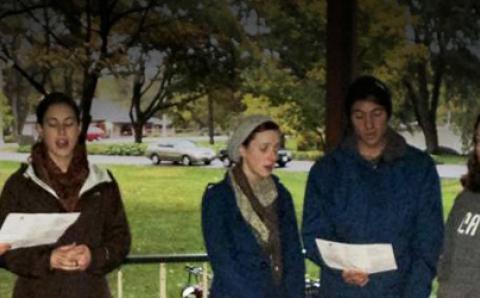What societal issues ought we to address as a denomination? Synod 2012 wrestled with this question with respect to the Belhar Confession, the report on Creation Stewardship, and the work of the denomination’s Office of Social Justice.
In these debates, delegates often invoked the Reformed distinction between church as organism and church as institute.
The church as organism is Christ’s church in its widest dimension: the body of Christ, made up of all true believers, wherever they are and in all of their living. They are church, called out to be God’s people at home, school, work, in the marketplace, in government—wherever. Following the Lord of all, they live and grow God’s kingdom. Most biblical references address the church as organism.
But Scripture also speaks of “church” in a narrower sense: a specific, organized gathering of believers. We call it the church as institute—local manifestations of Christ’s body, gathering for worship, shepherding members, and reaching out with Word and deed to serve the community. These congregations often form wider structures for mutual accountability and engage in work better done together than alone (world missions, church planting, diaconate).
Synod delegates agreed that the church as organism should address all societal issues, since Jesus is Lord of all. Believers, individually and communally, should speak God’s truth into family, politics, economics, and culture. But delegates were divided on whether the church as institute should also address contentious issues that arise in those spheres. Many believe that the institutional church should stick to its knitting, leaving it to individual believers and organizations to tackle issues that lie outside of the church’s expertise (climate change, economic injustice).
I believe that the task of the institutional church is to proclaim the gospel in all its fullness. That proclamation is received first by its members—who then confess (say together) their faith in song, word, and deed. But it should also be addressed to those living beyond those solid oak doors. The gospel is for everyone. So the institutional church may allow the light of Scripture to illumine every issue. But it must do so only within its area of expertise: proclaiming and professing the Scriptures. It should speak out prophetically against those who promote or perpetuate racism, injustice, or poverty, or who despoil God’s good creation.
The institutional church should not pretend to know or advocate for specific policies by which these concerns should be addressed. It should articulate the principles and leave their concretization and implementation to those who bear that responsibility (governments, educational institutions, businesses). Where the Christian Reformed Church can speak with one voice, let’s let it speak. By clearly articulating what our Lord requires, we make our own unique contribution to those with the task of working out ways and means.
Let’s not cease debate on this crucial question just because Synod 2012 is a wrap. And let’s not focus on what issues the institutional church (congregation, denomination) should address, but how it should address them.
About the Author
Bob De Moor is a retired Christian Reformed pastor living in Edmonton, Alta.









